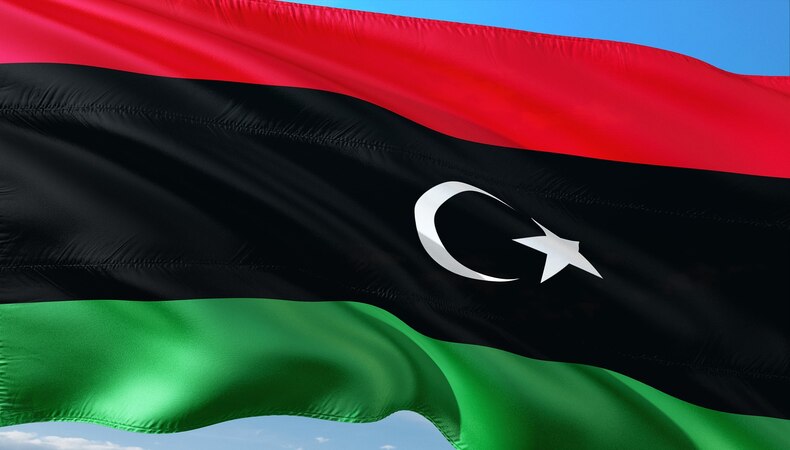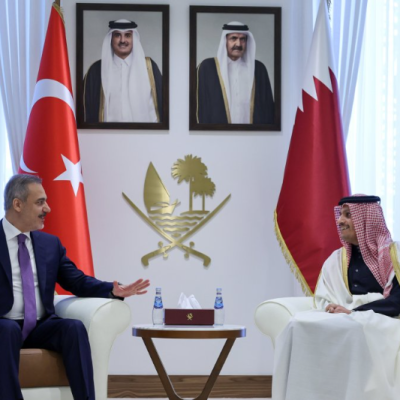Libya on the Brink of Revolution Amid Central Bank Collapse and Rising Tensions

Libya is about to undergo a possible revolution while much of the world’s attention is still directed on crises between Israel-Palestine and Ukraine. The recent collapse of the nation’s central bank has aggravated already high tensions between competing administrations and armed militias. As militias get more powerful, the precarious political and economic terrain split between the Government of National Accord (GNA) in Tripoli, led by Abdul Hamid Dbeibah, and a rival government in Benghazi supported by warlord Khalifa Haftar is now showing more volatility.
The fall of the central bank and its repercussions
The fall of the Central Bank has set many people in great worry about Libya’s fate. A foundation of Libya’s financial system, the bank manages the two main commercial banks of the nation and maintains reserves totaling $27 billion, most of which come from oil sales, therefore influencing the nation’s economy. But armed militias are ready to exploit the power vacuum left by the failing bank, threatening to grab control of important resources and therefore destabilize the nation.
Chairman of the Peace and Prosperity Party in Libya Mohamed Khaled Elghuel underlined that Libya now has two very different options: either a total makeover of the political system towards federalism or a revolution maybe even more destructive than the one in 2011. Should no urgent action be done to stop the continuous dysfunction, the matter may develop into a full-scale collapse generating great disturbance and violence.
A Chronicle of Conflict and Neglect
The complicated history of Libya is fundamental in the present predicament. Libya has stayed split between its western and eastern halves after Col. Muammar Gaddafi fell in 2011, under help from Western nations. The schism has left the nation without a cohesive government, which makes handling its several problems difficult. The continuous power struggle between the government based on Benghazi and the Tripoli-based GNA has just widened the political gulf within the country.
The firing of Sadiq al-Kabir, the governor of the Central Bank since 2011, forms the core of the present controversy. Key player in Libya’s post-Gaddafi era, Kabir had lately clashed with Prime Minister Dbeibah over his expenditure policies, and he is currently seen as supporting rebels in eastern Libya. Reacting to Kabir’s firing, the eastern government—which supports his sacking—has gone far and suspended all oil output and exports until he is restored. This choice has had major effects since the impacted oilfields account for almost 90% of the nation’s export capability and production capacity.
The firing of Kabir and the consequent halt of oil output have led Libya into a cash crisis. In Tripoli, Abdel Fattah Ghaffar, the recently appointed temporary deputy governor, held a news conference trying to reassure the people he could fix the liquidity issue and pay delayed salaries. Kabir has cautioned, meantime, that August payments might not be paid, citing militia threats and the abduction of bank employees as main challenges to the bank’s activities.
The Oil Dependency Trap
Libya depends on oil income, which explains its economic fragility. The nation has battled to have a clear strategy for using its oil riches since the 1960s, which has resulted in the rentier state beset by corruption and inefficiencies. Lack of economic diversification and improper handling of oil income have made Libya prone to internal strife. The nation’s economic stability stays under danger as local production confronts constant difficulties and oil prices change.
From January to July 2024, the Central Bank of Libya reports that the nation brought in 51 billion dinars in oil income compared to 99.1 billion dinars in 2023 and 105.4 billion dinars in 2022. This dramatic drop in oil income emphasizes Libya’s reliance on oil exports and its unstable economy. Political unrest has caused oil production to be suspended, so the financial problem of the nation is probably going to get worse and will affect its people much more.
Social Conflict and Poverty
Apart from the political and financial difficulties, Libya is also dealing with a developing humanitarian situation. Reflecting the declining living conditions in Libya, the National Institution for Human Rights there claims that the poverty rate has climbed to 40% as of December 2023. Social unrest is growing as a result of widespread unemployment, unpaid pay, and an always worsening economic condition; a revolution seems more likely.
Elghuel pointed out that Libya’s continuous internal strife results from historically more of a foreign than a national decision taken about the country’s independence. He said Libya has kept suffering with division and instability without a national charter devoted to peace and togetherness. The crisis has been exacerbated by ineffective investment of oil profits, therefore resulting in the present unstable position.
A revolution or a reset?
Elghuel cautioned that without quick response, the present crisis can spiral into a revolution considerably worse than the one in 2011, which witnessed the overthrow of Gaddafi and the consequent country disintegration. His alternative is a whole political system reset toward federalism, which may enable more regional autonomy and a more fair sharing of resources.
Still, the road to stability is yet unknown. The possibility for more bloodshed and anarchy is great as armed militias acquire influence in the capital and opposing regimes fight for control of the national resources. The stoppage of oil output and the fall of the Central Bank have only made the situation worse; it is yet unknown whether Libyan officials will be able to break out from the present deadlock.
The fall of the Central Bank and the stoppage of oil output have generated a perfect storm of political, financial, and social unrest as Libya balances on the brink of revolution. The nation’s reliance on oil income combined with decades of corruption and poor government has made it prone to internal strife. The future of Libya rests in jeopardy as conflicting governments and militias jockeying for dominance. Though it remains to be seen if the nation would plunge into a fresh revolution or find a means of political system reset, the next months will be crucial in deciding its fate.




